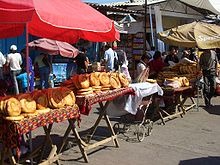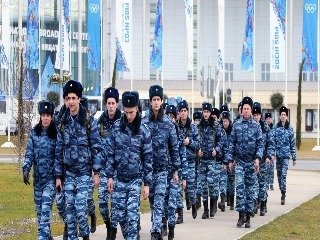Kyrgyzstan Wants to Keep Its Wholesale Markets in the Customs Union
By Jamil Payaz (the 05/02/2014 issue of the CACI Analyst)
Kyrgyzstan has slowed down its accession to the Russia-led Customs Union after the Eurasian Economic Commission disregarded its request to include special preferences in Kyrgyzstan's roadmap. With an economy immensely benefiting from the transit of Chinese goods to the wider region, Kyrgyzstan is asking that its wholesale bazaars, Dordoi, Karasuu, and Madina, be granted free-trade-zone status and other support for the first years of its membership. However, it remains to be seen whether the Union members will eventually concede to Kyrgyzstan’s conditions, as free-trade-zones would undermine the Union’s very idea of protecting its market.

Protests in Kyrgyzstan Against Customs Union Entry
By Arslan Sabyrbekov (the 05/02/2014 issue of the CACI Analyst)
Kyrgyzstan’s entry into the Customs Union with Russia, Kazakhstan and Belarus is a hot topic in Bishkek as the recently created political party Reforma, with the support of civil society activists, organized a protest against the country’s entry into the Union. According to the protest organizers and participants, in the Customs Union Kyrgyzstan will lose its sovereignty, face restrictions on its political freedom and the prices for all commodities will rise by 25-30 percent.
Kazakhstan Adopts New Foreign Policy Concept
By Georgiy Voloshin (the 05/02/2014 issue of the CACI Analyst)
On January 29, Kazakhstan's President Nursultan Nazarbayev approved his country’s new foreign policy concept for the period 2014-2020. As the document states, it was developed in line with the “Kazakhstan 2050” strategy made public by President Nazarbayev in December 2012 and further detailed in his recent address to the nation last month. The major goal of this strategic initiative is to ensure Kazakhstan’s entry into the elite club of the world’s 30 most developed countries by the turn of this century.
“CACI Analyst, January 22, 2014”
Moscow Takes Counterproductive Security Measures Ahead of Sochi
By Valeriy Dzutsev (the 22/01/2014 issue of the CACI Analyst)
As the attacks of the North Caucasian insurgency appear to move closer to the region of the Winter Olympics in Sochi, the government further increases the security precautions. Apart from the failings of the Russian security services, the attacks highlight the growing support for the insurgents among the general population in the North Caucasus. Nearly extreme measures taken by Moscow to shield the Olympics from the North Caucasian insurgents further contribute to the isolation of this region from the rest of Russia and the rise of ethnic tensions. The situation around the Olympics looks increasingly odd as the sport event appears to be destined to take place in an area surrounded by a war zone.



